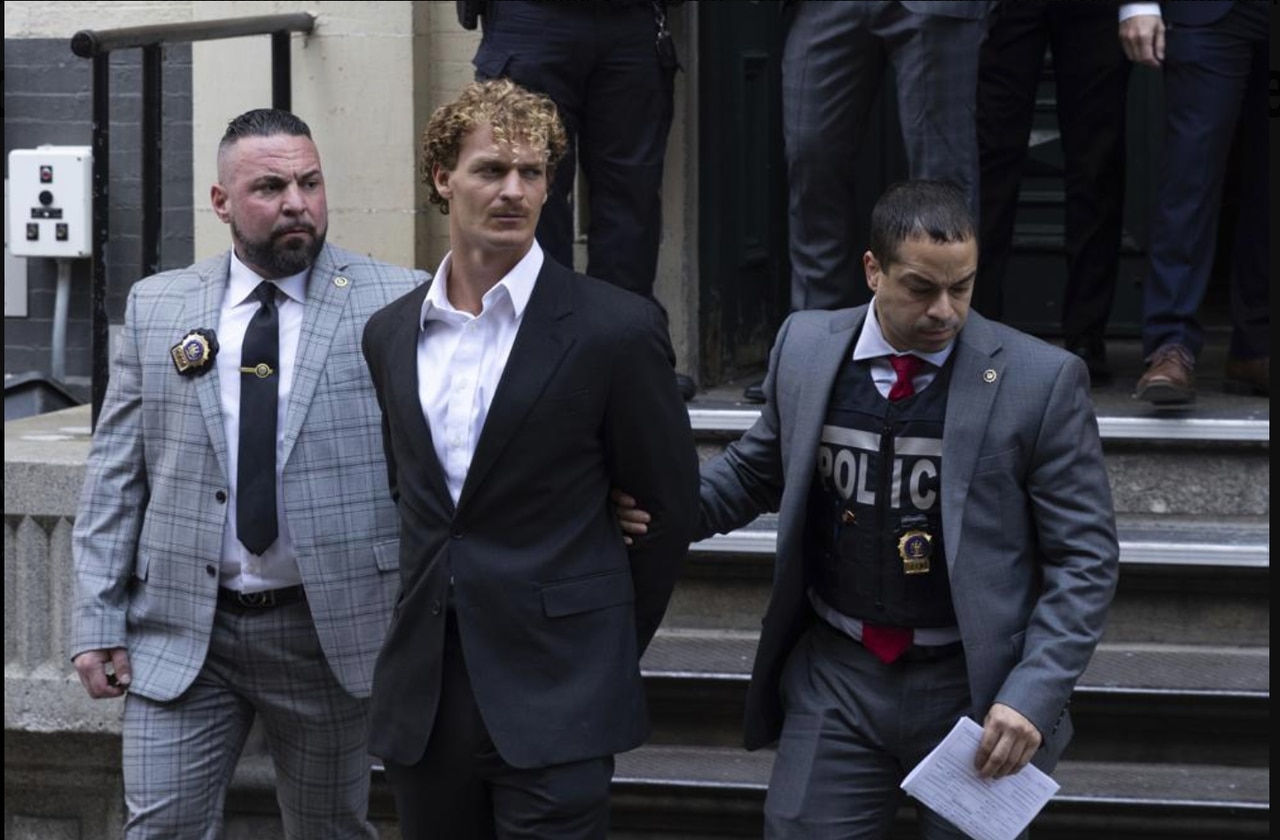Daniel Penny, 24-year-old at center of Jordan Neely death, indicted by grand jury
Daniel Penny, the white man who put Jordan Neely, a homeless Black man, in a chokehold on a New York City subway train was indicted by a grand jury Wednesday in connection with his death, a spokesperson for the Manhattan District Attorney’s Office confirmed Thursday.
“A grand jury has returned a true bill in the case against Daniel Penny,” Doug Cohen, a District Attorney spokesperson, said. “We cannot comment further until the arraignment takes place.”
Last month, officials charged the 24-year-old Marine vet with second-degree manslaughter in the incident, which was caught on video. He faces up to 15 years in prison if convicted. The Manhattan Medical Examiner previously ruled Neely’s death a homicide.
In a video released by Penny’s lawyers this week, Penny said that Neely repeated three threats over and over again: “I’m going to kill you. I’m prepared to go to jail for life. I’m willing to die.”
“I was scared for myself,” Penny claimed. “But I looked around, I saw women and children. He was yelling in their faces saying these threats.
“I couldn’t just sit still,” Penny said.
Police officials previously told news outlets that he wasn’t violent toward passengers.
On May 1, Neely boarded a northbound Manhattan subway F train. According to witnesses, Neely began asking for food and water and said that he didn’t care if he died. He soon encountered Penny.
In footage of the incident taken that day by freelance journalist Juan Alberto Vázquez, Neely is seen laying on the train floor, with Penny on top of him holding him in a chokehold as two other unknown passengers attempt to restrain him.
Video showed the incident lasting two minutes and 55 seconds.
Penny disagreed with the way the incident has been characterized publicly.
“Some people say that I was holding onto Mr. Neely for 15 minutes,” he said. “This is not true.
“The whole interaction [was] less than five minutes.”
Steven Raiser, an attorney defending Penny told reporters that, “While we respect the decision of the grand jury to move this case forward to trial, it should be noted that the standard of proof in a grand jury is very low and there has been no finding of wrongdoing,” he said, adding that his office would “aggressively defend” his client.
“We’re confident that when a trial jury is tasked with weighing the evidence, they will find Daniel Penny’s action on that train were fully justified.” Raiser did not respond to Reckon’s request for comment.
Attorneys for 30-year-old Neely’s family released a statement to reporters after the indictment saying that Penny “did not have the right to be the judge, jury and executioner.”
Neely’s death spurred protests across the city, resulting in multiple people being arrested. Activists seized the moment by advocating for mental health reform and demanding that the city provide services for vulnerable homeless individuals.
In a written statement posted to their website, the Corporation for Supportive Housing, which is headquartered in New York City, challenged the state of affordable housing across the city.
“We are horrified and saddened by the fact that one of our neighbors was attacked and killed so publicly without a single person coming to his aid,” the statement reads.
“It forces us to ask the question of how our society, time and time again, has failed people like Mr. Neely for whom affordable housing and mental health services have remained unattainable.”
Earlier in his life, Neely was known for his Michael Jackson impersonations in Times Square and on subway trains.
Speaking to ABC News last month, his great-aunt, Mildred Mahazu, described him as a “very, very sweet person.
“He liked to be loved and he loved people,” she said.
